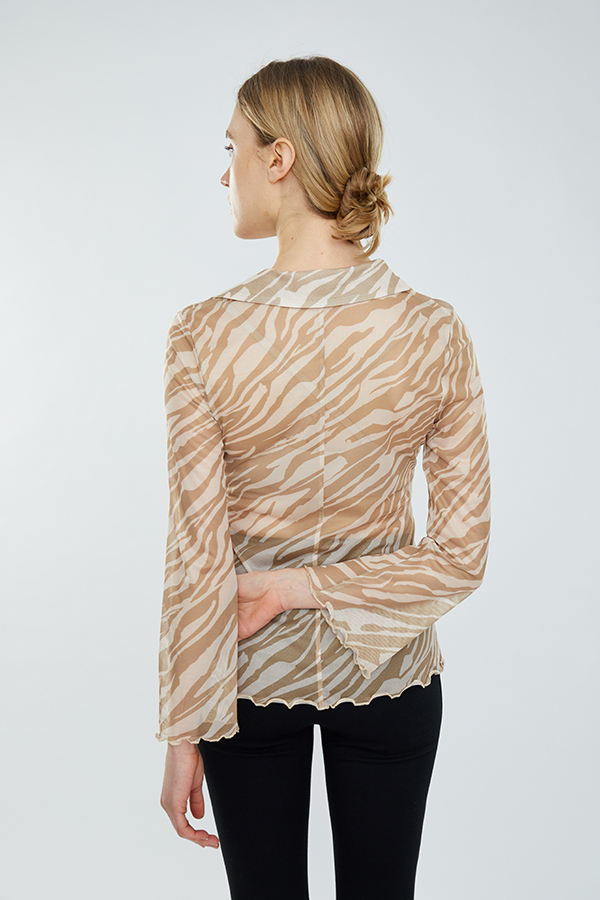DOHA, Qatar (AP) — Coming from Brazil for the World Cup in Qatar, Daniela Crawford had been worried about conservative dress codes. But like many women attending the tournament, she said she found no problems.
“In Brazil people are used to it, but we came here and decided to show how we are,” said Crawford — wearing shorts — as she took pictures with a Brazilian flag with her husband and two sons outside Doha’s Education City Stadium before the Brazil-Croatia quarterfinal match last week. Fleece Jacket

This is the first World Cup held in an Arab and Muslim nation. In the lead-up, the Qatari government, world soccer body FIFA and national governments advised people attending from around the world to respect local customs, on everything from women’s dress to drinking.
Many women fans speaking to The Associated Press said that despite worries, they’ve encountered no troubles and only had to make minor adjustments in how they dress. Some welcomed Qatar’s tight restrictions on alcohol, saying it made them feel safer. Qatar, meanwhile, is presenting the tournament as an opportunity to overcome stereotypes about women’s role here.
Qatar is a conservative nation, and most Qatari women in public wear the headscarf and loose-fitting robes. But it’s also home to an international population of more than 2 million foreign workers, far outnumbering the around 300,000 citizens – so it’s hardly unused to foreign women.
Bemie Ragay, a Filipina woman who has worked in Qatar for eight years, said she has always felt safe, “safer than my country.” Attire is not an issue as long as you know the boundaries, she said, pointing out that she was wearing a crop top.
“You can’t just walk here in the street in a backless (outfit). You have to respect their culture,” she said.
Isabeli Monteiro, a 32-year-old Brazil supporter, said she was wearing longer skirts instead of shorts and has had no difficulty. “Nobody looks at us in any way, especially because we are within a World Cup with different cultures from all over the word.”
Women played an integral role in organizing the World Cup, including several in high positions in the Supreme Committee, the body in charge of the tournament, said Fatma Al Nuaimi, the SC spokesperson.
She said she hoped one legacy of the tournament would be to change attitudes about women in the region.
“A lot of people actually have a misperception, especially when it comes to the role of women in Qatar or in the region,” she said. Fans coming to Qatar see that “women do have rights and women are actually being empowered,” she said.
Qatar has said improving the situation of women in the tiny Gulf nation is one of its priorities. Women hold a number of prominent government and academic positions, including three ministers in the Cabinet. The mother of its ruling emir, Sheikha Moza bint Nasser al-Missned, is one of the most famous women in the Arab world, known for advocating for social causes.
Qatar also has one of the strongest rates of women’s education in the Arab world. The number of Qatari women in university is twice the number of Qatari men, and nearly all Qatari children — boys and girls — attend primary school.
Still, the country has for years sat near the bottom of the World Economic Forum’s Global Gender Gap Report, which tracks gaps between women and men in employment, education, health and politics.
Rights groups have pointed in particular to laws that require a male guardian’s permission for a woman to travel or marry, and they say women often need the same permission to work or for some forms of reproductive health care, including pap smears.
Around 37% of Qatari women work, high for the region, but it has remained level in recent years, according to government statistics. By comparison, Saudi Arabia has seen a more aggressive growth, with the percentage of Saudi women with jobs rising from 14% in 2019, one of the lowest in the region, to nearly 27% this year.
Mead El-Amadi, director of the FIFA Fan Festival in Doha, said women involved in organizing the tournament will be role models for other women who want to go into the business of soccer or sports in general.
“Globally football is a male-dominated sport,” she said. But she said women organizers had support of their male colleagues “to make this happen and to make the world look at us today, delivering this huge event.”
AP journalist Lee Keath contributed to this report. ___

Ladies Coat AP World Cup coverage: https://apnews.com/hub/world-cup and https://twitter.com/AP_Sports